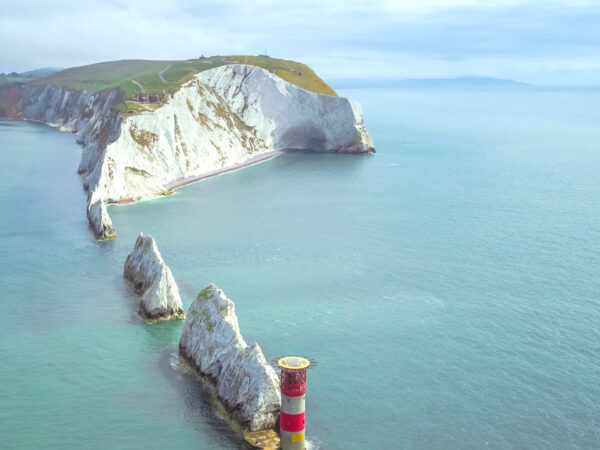Project UN:LOCK and REACH were both awarded funding through Round 3 of Ofgem’s Strategic Innovation Fund (SIF), which is designed to drive the innovation needed to transform gas and electricity networks for a low-carbon future. The Discovery phase of both projects will run from March to May 2024.

“We’re excited to be starting work on these two important projects. Both will look at innovative solutions to overcoming network constraints that are preventing the connection of renewable generation and low-carbon technologies. They aim to tackle different specific challenges, but both are striving to meet local and national decarbonisation needs by engaging local people and businesses in the solutions.”
– Tamar Bourne, Head of Innovation
Project UN:LOCK
Project UN:LOCK – Unblocking Networks: Local Optimisation, Consumers and Knowledge – will explore non-network solutions to accelerate the connection of new generation projects on the Isle of Wight. Delivered in partnership with Scottish and Southern Electricity Networks (SSEN) and Environmental Project Support, it will build on a previous Regen study to explore opportunities to connect additional generation within existing network capacity limits, to help facilitate the island’s net zero aspirations.
Background and project aims
The Isle of Wight is one of the sunniest parts of the UK, making it popular for solar power generation. However, there is a limit to how much of this renewable electricity can be exported off the island due to the available capacity of the cables that connect it to the mainland. The island’s electricity network has been constrained on generation for more than a decade, preventing new renewable energy and storage projects from being able to connect without triggering significant and high-cost network reinforcement.
In 2022 Regen was commissioned to produce a granular assessment of the potential for electricity load growth on the island, with the evidence collated used to inform conversations between SSEN and Ofgem about investment in network reinforcement. The evidence case report, published in 2023, was the culmination of 18 months of study and undertook a detailed, accurate review of planned and aspirational growth of electricity demand, generation and storage across the Isle of Wight. This analysis was supplemented by engaging a number of energy project developers and owner/operators active on the island, asking about their appetite to develop renewable energy projects should the network constraints be alleviated. There was consensus that the Isle of Wight is a great place to develop renewables and the grid constraints are preventing strong projects from coming forward in a supportive local authority area.
Project UN:LOCK will look at ways in which the connection of new generation can be accelerated ahead of network reinforcement, exploring opportunities to reliably increase on-island demand at the appropriate times to create additional capacity on the network. The research will be undertaken in a way that is replicable across GB to accelerate the connection of new renewable generation in other areas of constrained network.
Project REACH
The Rural Energy and Community Heat (REACH) project is looking at novel and innovative solutions for how rural areas can achieve their decarbonisation objectives, particularly when electricity network constraints are a barrier. Working collaboratively with communities, and with National Grid and technology partners, we will explore technological and financial solutions that can accelerate the uptake of low-carbon technologies. This may include quicker access to modular EV charging and energy storage, and shared centralised heating solutions.
Background and project aims
To deliver net zero, communities need to shift toward electrification of heating and transport, and the installation of local and small-scale renewable energy and storage. This will have a significant impact on electricity networks and may necessitate expensive infrastructure upgrades. This will be most challenging in rural areas, which make up over 20% of the UK population, and face unique challenges:
- Rural areas may have to wait several years for adequate sufficient network capacity to enable electrification.
- Rural areas face unique challenges as electricity networks tend to rely on radial networks, which have less resilience in the event of a fault.
- Domestic properties in rural areas tend to be older and can be more difficult to retrofit.
To address these challenges, project REACH is exploring innovative and modular approaches to deliver low-carbon technologies for rural communities.
For more information on project UN:LOCK, please contact Ellie Brundrett.
For more information on project REACH, please contact George Middlemiss.
For more information about Regen’s work with electricity networks or future energy systems, please contact Ray Arrell.
